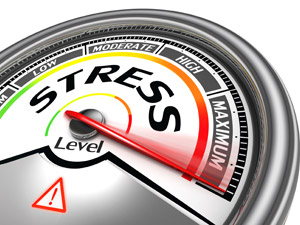I’M going to tell you something that might surprise you: people who consume lots of sugar packed foods would rather have an immediate sweet treat than be rewarded with money later. How weird is that? Well, it’s not weird at all – it’s actually very common! I’ve been looking at new research from America that provides conclusive proof that something many of us consume every day is having a very powerful effect on our brains – to the point where it influences us to make what is clearly a poor decision.
Think about it for a second: a sugar packed treat that we know isn’t going to be good for us or some money? It seems like a no-brainer, doesn’t it!
But certain sugar sweeteners force us to make the wrong decision, no matter how obvious the right decision might seem.
I’ve written before about the dangers of hidden sugar in foods, and how sugar addiction can cause eating disorders.
Recent research is showing that even among sugars, some are more dangerous than others for our health, and fructose is emerging as a major suspect as an underlying cause of obesity.
The new study which grabbed my attention has been published by the University of Southern California, and it compares the effect on the brain of two different sugars, fructose and glucose. In really basic terms, fructose is “bad” sugar and glucose is “good sugar.”
The study took 24 healthy volunteers, gave half of them a drink containing fructose and half a drink containing glucose, then carried out various tests on them including an MRI scan. The subjects were asked to look at pictures of food and non-food items and asked to rate their desire to eat on a scale of one to 10 from “not at all” to “very much.”
Then they were then asked to choose between immediate food and a delayed monetary reward. The researchers concluded that the subjects who drank the fructose sugar drink showed more activity and greater responses to food cues in the brain’s reward region, the orbital frontal cortex.
Those who drank the fructose sugar drink showed a higher tendency to choose the immediate food reward rather than the future promise of money compared to those who drank the glucose sugar drink.
The senior author of the study, Dr. Kathleen A. Page concluded: “Insulin is released when we consume glucose. The pancreas secretes insulin, and insulin drives glucose into cells so that it can be used for energy.
“But it also sends a signal to the brain that says ‘you’ve eaten.’ Fructose doesn’t stimulate insulin secretion, and if there’s no insulin, you don’t get the information that you’re full.”
This study correlates with an earlier study by the Mayo clinic in America, which concluded that fructose sugar is damaging to our metabolism and insulin resistance and is a major factor in diabetes.
So we need to be wary of fructose sugar – or at least the manufactured kind that is used in processed food and ready meals.
Fructose occurs naturally in small quantities in many fruits, but it is also routinely added in large amounts to many processed foodstuffs by the food industry.
Even foods that are not specifically sweet like tomato sauce and some bread and shop-bought salad dressings may contain fructose sugar, and it is this hidden level of fructose which provides the most risk, as most consumers are not aware it is there.
The conclusion from all of this, as always, is to try to limit your consumption of processed foods and focus on foods that come to you in the state they were harvested, not the ones with added sugar that have come from a factory.
Eating fresh fruit in moderation has many benefits which outweigh the risks posed by the fructose, but be wary of fruit-flavoured products and other sweet treats.
If you feel you are addicted to sugar and sweet things and they are causing you to binge unnecessarily, then you may wish to try my Slimpod programme FREE for 10 days.
It interrupts unhelpful patterns of behaviour and helps you ignore the sweet stuff!
Judging by the results of this latest research work into sugar, this can only be good for all of us.




